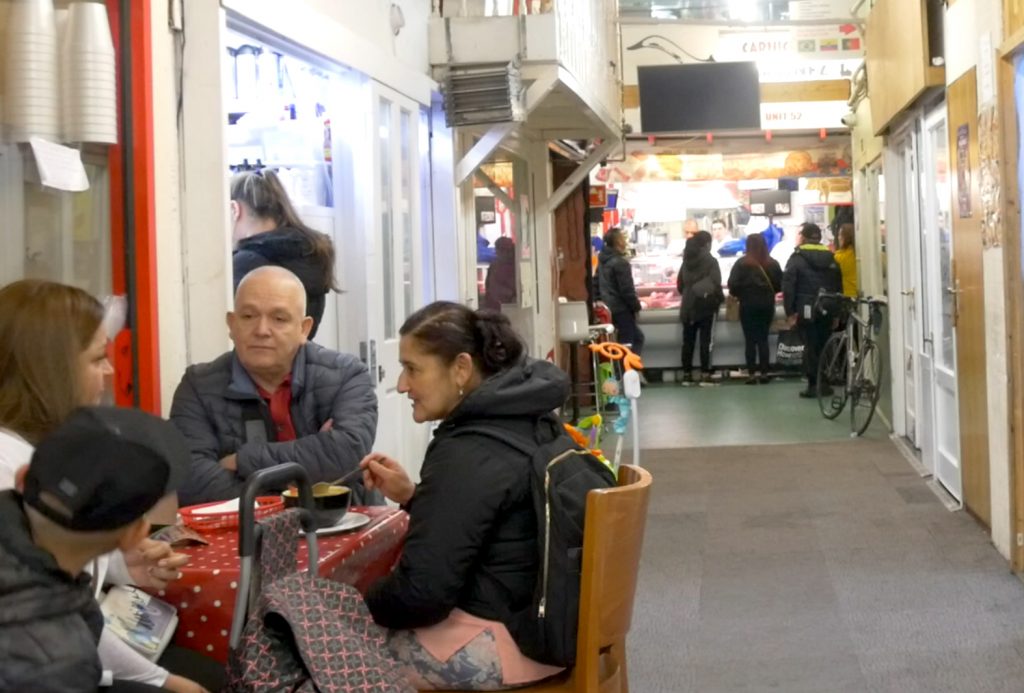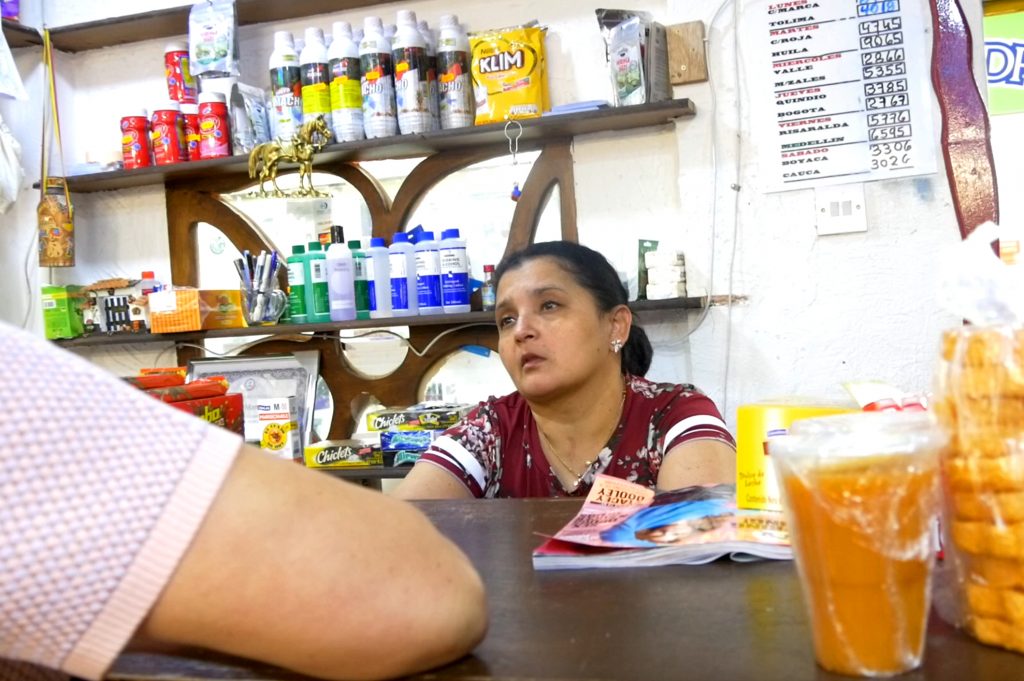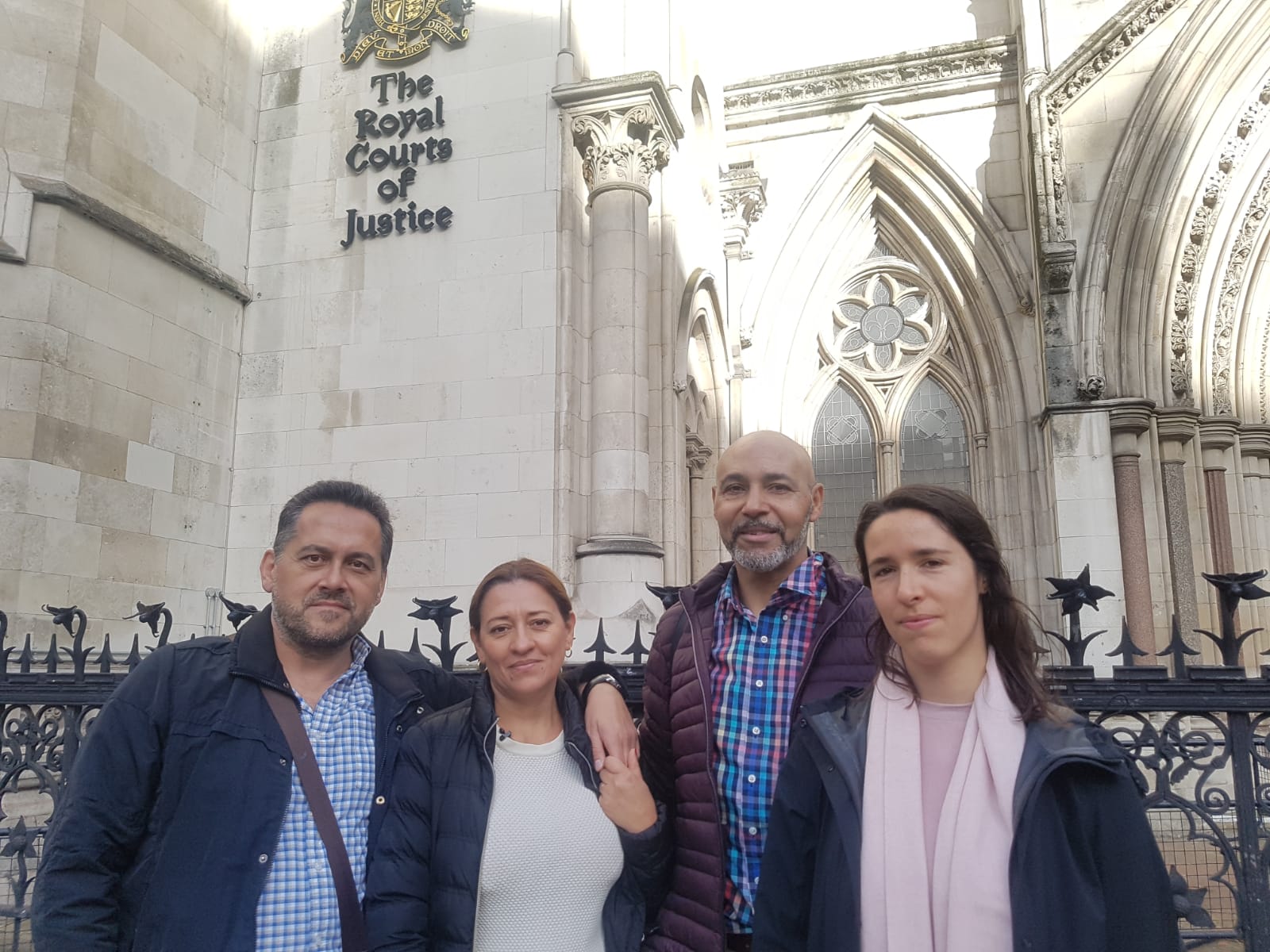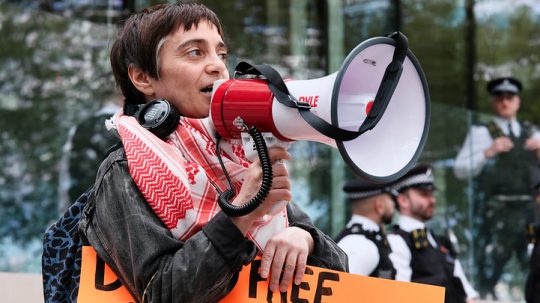The government’s decision to allow the demolition and redevelopment of one of the UK’s only Latin American markets was based on a “fundamental misunderstanding” about how it would affect traders, a court heard.
Traders from north London’s “Latin Village”, an indoor market in Seven Sisters, are challenging a compulsory purchase order (CPO) which will allow developer Grainger to tear it down and build 196 flats and a shopping centre on the site.
The High Court heard on Tuesday (8 October) that planning inspector John Felgate made an error in his 2018 CPO report, which recommended that James Brokenshire, who was Housing Secretary at the time, should approve the order with some minor changes.
It was argued this error undermined the Ministry for Housing, Communities and Local Government’s (MHCLG) ability to accurately weigh up the benefits of the development with the impact it would have on the community’s human rights. The traders are calling on the court to quash the CPO, which was granted in January this year.
But lawyers acting on behalf of the government and Haringey Council insisted the alleged mistake in the inspector’s report was only a “slip in phrasing.”
The report is accurate when read as a whole and made no difference to the Housing Secretary’s decision, the court heard.

Victoria Alvarez, who came to the UK as a refugee from Colombia, said the market is a “microcosm” of Latin American culture. Image Credit: Aaron Walawalkar
It’s a cultural hub, not just for the traders and their families, but for every other Latin American that comes to visit.
Marc Willers QC, Garden Court Chambers
The challenge was brought by trader Nicholas Amayo and spokesman Carlos Burgos. Their market is home to 60 units containing independent businesses – including restaurants, nail salons, bakeries and money exchanges – which employ around 160 people in total.
It has developed into a “microcosm” of the Latin American culture since the early 2000s, their fellow campaigner Victoria Alvarez told EachOther in June.
Marc Willers QC, representing the traders, told the court: “It’s a cultural hub, not just for the traders and their families, but for every other Latin American that comes to visit.”
Haringey Council has earmarked the site for redevelopment since at least 2004. This has been met with opposition from traders for more than a decade amid fears the market’s cultural character will be undermined and rents will become unaffordable.
United Nations experts released a statement in March this year labelling Grainger’s scheme a “human rights threat” which may “displace an estimated 160 people.”
Grainger was granted planning permission to redevelop the market in 2012. They have offered to move the market to a temporary new location, but traders claim rents will go up and they would be put out of business.
The Housing Secretary “has effectively underplayed or misunderstood and failed to grapple with the impact of the CPO on cultural rights,” Willers argued.
This is due to the planning inspector giving an “erroneous interpretation” of Grainger’s commitment to guarantee the price of traders’ rent for five years in his report to the department.
The court heard that one bullet point in the inspector’s report suggests traders’ rents will be guaranteed to rise by no more than two percent per year indefinitely.
But the reality is that Grainger had only agreed to guarantee rents for five years, after which they would be set at open market rates. Willers argued this would diminish the markets’ prospects of survival, weakening any public interest arguments which could justify some infringement upon the traders’ rights.
A Human Rights Balancing Act

Image Credit: Aaron Walawalkar
The traders argue the redevelopment plans will impinge upon a number of their rights that are protected under the Human Rights Act, and treaties such as the International Covenant of Social, Economic and Cultural Rights.
Among these is the traders’ right to maintain their Latin American ethnic identity, which is protected under Article 8 of the Human Rights Convention, they argued.
Articles 8 is qualified – meaning the state can take proportionate steps to interfere with it for specific reasons, such as preventing crime and disorder.
It was also argued that CPO infringes on the community’s right not to be discriminated against, as it disproportionately affects Latin Americans, and affected their right to enjoy private property.
However the right to enjoy private property, protected by Article 1 of Protocol 1 of the Human Rights Convention, also makes allowances for CPOs where “a fair balance between the rights of the individual property owners and the rights of the community” is struck.
Willers said: “If we are right that the secretary of state was misled, that draws into question the balancing exercise that he had to undertake.”
Were this bullet point to have been accurate, Willers added, “there is a realistic possibility that [the Housing Secretary] might have come to the opposite view”.
He pointed to the fact that no evidence had been presented to suggest that the Housing Secretary had identified this error in the report but decided to proceed with his decision anyway.
‘Thrown To The Wolves’

Image Credit: Aaron Walawalkar.
Representing the government, barrister Richard Honey argued that inspector’s report was accurate overall, with other sections making it clear that traders’ rent would only be guaranteed for five years.
He cited the inspector’s inclusion of a written submission from the traders saying that “[we] will be thrown to the wolves on the open market after the five years has elapsed,” among other sections.
“The court should have regard to [the report] as a whole and decide whether the inspector really did misunderstand this point, as opposed to merely making a slip when phrasing the seventh bullet point in IR40,” Honey said.
He added: “There was no fundamental misunderstanding and therefore the secretary of state’s balancing act was not affected by any error.”
The court also heard that the Housing Secretary would have ultimately come to the same decision regardless of the alleged mistake. It was argued the traders did not offer any evidence to prove that they would not be able to afford to pay market rents
Representing Haringey Council, Tim Corner QC backed Honey’s arguments. “This scheme is an integral part of the council’s regeneration scheme for Tottenham and for the borough as a whole,” he said. “The scheme will positively advance the areas social and economic wellbeing.”
Judge Robert Jay will hand down judgment at 3pm on Thursday (10 October).







